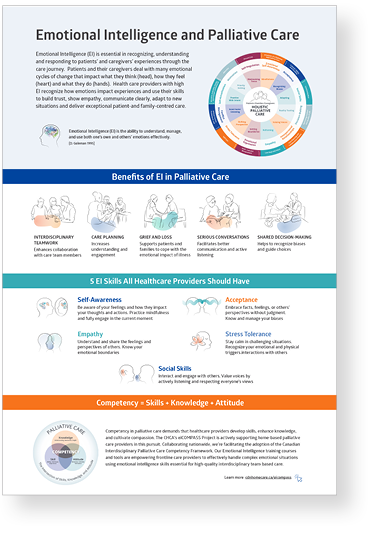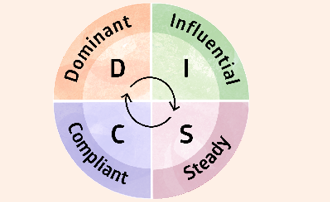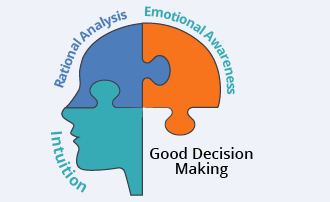PRIORITIES: Home-Based Palliative Care
DEVELOPING EMOTIONAL INTELLIGENCE
While the Canadian Interdisciplinary Palliative Care Competency Framework sets a national standard for skills and knowledge across twelve core domains, there is increasing recognition among health system leaders, educators, and frontline providers that a greater understanding and use of emotional intelligence (EI) is foundational to translating competencies into practice. Emotional intelligence enables healthcare providers to navigate the emotional complexities of providing palliative care by:
- Recognizing and regulating their emotional responses,
- Understanding and responding to patients’ and families’ emotional needs and
- Knowing how to use emotions when working as part of a multidisciplinary care team.








